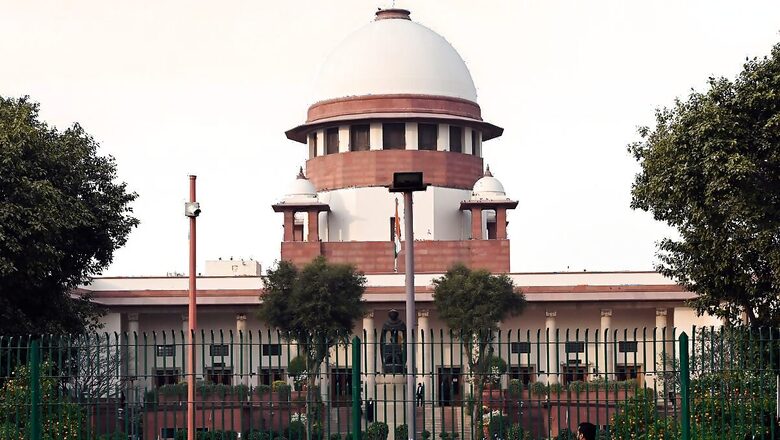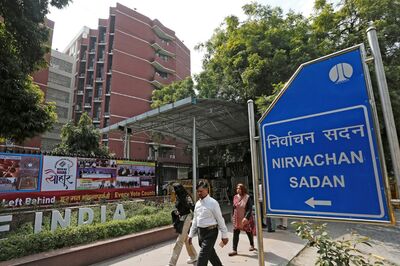
views
The Supreme Court on Tuesday said people do not purchase high-end luxurious cars to suffer discomfort, as it directed Mercedes Benz India Private Ltd to refund Rs 36 lakh to a buyer for sale of a defective vehicle.
A bench of Justices Bela M Trivedi and Pankaj Mithal partly allowed an appeal by the carmaker against the National Consumer Disputes Redressal Commission’s order.
“We are of the opinion that the interest of justice and balance of equity would be met if the respondent complainant is permitted to retain the car in question and the appellant is directed to refund Rs 36 lakh instead of Rs 58 lakh as directed by the National Commission in the impugned order,” the bench said.
M/s Daimler Chrysler India Pvt Ltd, now known as Mercedes Benz India Pvt Ltd, filed the appeal against the commission’s order of 2007. The consumer complaint was filed by M/s Controls and Switchgear Company Ltd, alleging the car suffered from excessive heating on left side of the centre hump within a short time of purchase in 2003.
After considering the affidavits, correspondences, reports and the other material on record, the bench said it has no hesitation in holding that such overheating of the surface of hump and the overall high temperature in the car was a fault, imperfection or shortcoming in the quality or standard which was expected to be maintained by the luxury car company under the contract with the respondent-complainant and therefore was a ‘defect’ within the meaning of Section 2(1)(f) of the said Consumer Protection Act.
The bench said: “People do not purchase the high-end luxurious cars to suffer discomfort more particularly when they buy the vehicle keeping utmost faith in the supplier who would make the representations in the brochures or the advertisements projecting and promoting such cars as the finest and safest automobile in the world.”
The court noted the complainant here suffered great inconvenience, discomfort and also the waste of time and energy in pursuing the litigations.
In the case, the appellant had made an offer in the year 2006 to repurchase the car in question as per the market value as of November 2006 to be Rs 34 lakh or at the book value of the car as of December 2006 to be about Rs 36 lakh. However, the respondent had not agreed to the said proposal, and continued to use the said car for about 17 years till this date.
In its contentions, the appellant also said the purchase of car or vehicle by a company for the use of personal use of its directors could not be said to be the purchase of vehicle for self-employment to earn its livelihood, but it has to be construed as the purchase of vehicle for “commercial purposes”. Therefore, such company would fall outside the purview of the definition of “consumer” within the meaning of Section 2(1)(d) of the said Act, it said.
The bench, however, noted it is discernible that the definition of “consumer” does not include a person who obtains any goods for “resale” or for “any commercial purpose”. Though what is “commercial purpose” has not been defined under the Act, it has been interpreted in catena of decisions by this court, it said.
The court pointed out the sum and substance of those decisions is that to determine whether the goods purchased by a person (which would include a legal entity like a company) were for a commercial purpose or not, within the definition of a “consumer” as contemplated in Section 2(1)(d) of the said Act, would depend upon facts and circumstances of each case.
However ordinarily “commercial purpose” is understood to include manufacturing/industrial activity or business-to-business transactions between commercial entities, it said.
The purchase of the goods should have a close and direct nexus with a profit-generating activity. It has to be seen whether the dominant intention or dominant purpose for the transaction was to facilitate some kind of profit generation for the purchaser and/or their beneficiary, it said.
The bench pointed out if it is found that the dominant purpose behind purchasing the goods was for the personal use and consumption of the purchaser and/or their beneficiary, or was otherwise not linked to any commercial activity, the question of whether such a purchase was for the purpose of “generating livelihood by means of self-employment” need not be looked into. Again, the said determination cannot be restricted in a straitjacket formula and it has to be decided on case-to-case basis, it added.
The court here dealt with appeals involving common question of law — whether the purchase of a vehicle or goods by a company for the use or personal use of its directors would amount to purchase for “commercial purpose” within the meaning of Section 2(1)(d) of the Consumer Protection Act, 1986, now re-enacted as Consumer Protection Act, 2019.
In connected matters, the court dismissed appeal by the company against the commission’s order awarding a compensation of Rs 5 lakh to purchaser for indulging in unfair trade practices by the appellants for incomplete disclosure or non-disclosure of the complete details with regard to the functioning of the airbags at the time of promotion of the car.




















Comments
0 comment